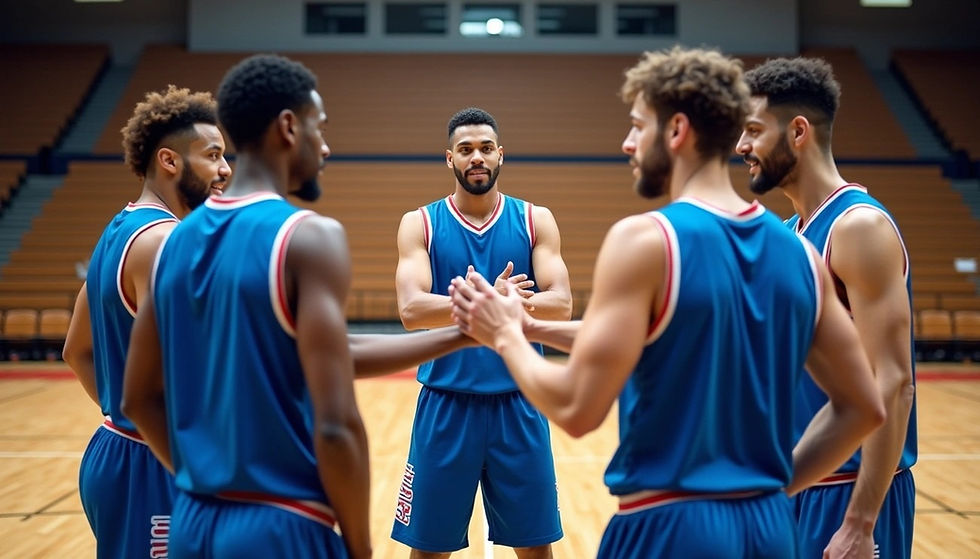8-Week Mental Game Plan for Gaelic Football
- Dr Paul McCarthy

- May 14, 2025
- 3 min read
Updated: May 19, 2025
Here is a mental game plan for Gaelic football to help you get the most from your game.
Core Objectives:
Enhance focus, composure, and resilience
Improve decision-making under pressure
Build confidence and mental toughness
Foster leadership and team trust

Weekly Breakdown of a Mental Game Plan for Gaelic Football
Week 1 – Self-Awareness & Role Clarity
Goal: Understand your mindset, strengths, and mental triggers
Mental Skills Self-Assessment (focus, confidence, anxiety, communication)
Define your role in the team: starter, leader, impact sub, etc.
Journal: “What’s my mental edge?” → Write 3 traits that give you an advantage
Breath check: Use deep exhale when emotions rise in training/matches
Week 2 – Focus & Attentional Control
Goal: Stay locked in during chaos and fatigue
Learn “focus zone” (what’s in your control, right now)
Practice focus cue: a short phrase like “Be here” or “Next play”
Drill integration: Use cue during small-sided or high-pressure drills
Build between-play refocus habits (e.g., touch jersey, reset breath)
Week 3 – Composure Under Pressure
Goal: Handle physical and emotional intensity without overreacting
Pre-match breathing routine (box breathing: 4-4-4-4)
Create a mistake recovery script (e.g., “reset → focus → impact”)
Practice pressure drills: Simulate being a point down in closing minutes
Journal: “What makes me lose control, and what can I do differently?”
Week 4 – Confidence Building
Goal: Strengthen belief and trust in your preparation
Create a “Highlight Reel” journal: Write down 3 past strong performances
Use confidence cue before plays: “You’ve done this” / “Fast and clean”
Post-training reflection: What did you do well? Where did you show resilience?
Share confidence mantra with a teammate to reinforce team belief
Week 5 – Communication & Leadership
Goal: Lead vocally and non-verbally; lift teammates under stress
Practice clear callouts in training: names, short commands, calm tone
Review body language during tough patches—practice strong posture
Use team reset cue: short phrase for team regroup (“Switch on,” “0–0 mindset”)
Leadership journaling: “What type of leader do I want to be?”
Week 6 – Mental Resilience & Recovery
Goal: Bounce back from mistakes, setbacks, or being benched
Reflective journaling: “Last time I failed—what did I learn?”
Resilience phrase: “Respond, don’t react” or “Every play is a new chance”
Mid-game reset practice: 3-breath routine + focus cue
Substitutes: Stay mentally engaged by tracking key plays and prepping mentally to enter
Week 7 – Game Intelligence & Decision-Making
Goal: Make smarter choices under time pressure
Visualization: Replay past matches → “What were better options?”
Mental rehearsal: 3 scenarios (kickout, breaking ball, pressure score)
Tactical journaling: “What do I do in red-zone decisions?”
Work with coach to link strategy to mindset (defensive triggers, transition control)
Week 8 – Match Preparation & Mental Routine
Goal: Lock in consistent mental habits before, during, and after games
Finalize pre-match routine: Warm-up, visualization, confidence phrase
Finalize in-game reset: Cue word + breath + task refocus
Finalize post-game reflection: What went well? What’s next?
Share mental goal with a teammate or coach before next match
Mental Tools Used Throughout:
Tool | Purpose |
Focus Cue | Redirect attention in pressure moments |
Box Breathing | Calm nerves, recover from mistakes |
Highlight Reel Journal | Build confidence |
Resilience Script | Recover from errors or benching |
Team Reset Phrase | Foster group composure |
Visualization | Improve decision-making and execution |
Optional Weekly Add-Ons:
Short mindfulness sessions (2–5 min, post-training)
Buddy check-ins (share mental goal for the week)
Group discussions on pressure and motivation








